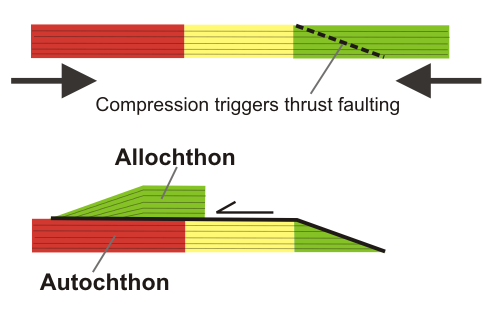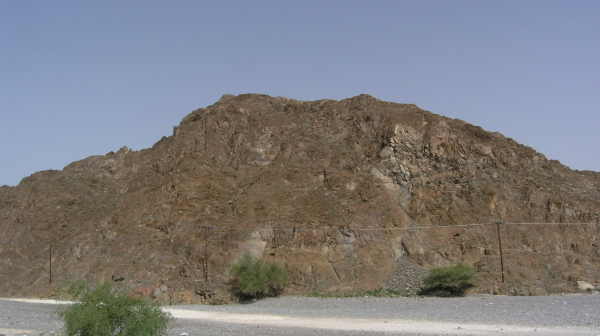![]() Be honest: when Evelyn asked the geoblogosphere, ‘what’s your favourite geology word?’, you all knew which word I was going to pick, didn’t you? Allochthonous. Allochthonous, the word that no-one can spell. Allochthonous, the word no-one can pronounce, it seems, given that I am asked how you do whenever I meet a reader of this blog. I personally think it trips off the tongue quite nicely. It is also a word with heft: it sounds like it means something, something important, interesting, monumental. And it does.
Be honest: when Evelyn asked the geoblogosphere, ‘what’s your favourite geology word?’, you all knew which word I was going to pick, didn’t you? Allochthonous. Allochthonous, the word that no-one can spell. Allochthonous, the word no-one can pronounce, it seems, given that I am asked how you do whenever I meet a reader of this blog. I personally think it trips off the tongue quite nicely. It is also a word with heft: it sounds like it means something, something important, interesting, monumental. And it does.
‘Allochthonous’ is derived from two greek words:
- αλλος or allos, meaning other, or different;
- κθονος or kthonos, meaning earth.
So, literally, allochthonous means ‘different earth’; or ‘stuff that’s not from around these parts…’ In tectonics, it is generally used to describe a sequence that has been moved a long distance from its original location by faulting (most usually, thrust faulting). For example, a sequence of sediments which were originally deposited in the deep sea, and have then been thrust over shallow marine or continental deposits of a similar age.

The formation of an allochthonous sequence by motion along a large thrust fault. The 'autochon' is the stuff that stays put, relatively. Colour coding represents continental (red) shallow marine (yellow) and deep marine (green) rocks.
Ophiolites would be another good example: the ocean crust itself thrust up from the depths onto the shore.

Part of the lower crustal sequence, Oman ophiolite. Photo taken by C. Rowan, 2010
In a wonderfully evocative turn of phrase, John Challinor’s Dictionary of Geology describes an allochthon as ‘the far-travelled ground’, and I think this gets to the heart of why I’ve always loved the word: it embodies the central idea of plate tectonics, the notion that the earth is continuously being reshaped and transformed by the large-scale movement of bits of crust across the Earth’s surface. Allochthonous thrust sheet, or nappes? You’re in a continental collision zone, where the opposite shores of a once large ocean – and bits of the ocean itself – are all mashed up against each other. Allochthonous terranes? Basically a larger scale version of the same thing, with island arcs and microcontinents once spread across half the planet getting welded together above a subduction zone. Allochthonous conjures up all of the things that I find most fascinating about geology. Plus, it has lots of syllables, something I also have an unhealthy fascination with…
As it turns out, the word allochthonous does also pop up in other branches of earth science, most particularly within the watery realms of my co-blogger. There, it is used to describe material, particularly organic matter such as leaves, which fall or get washed into a stream or lake from the surrounding land (Anne has now provided a more detailed explanation). I don’t think Anne thinks it’s quite as cool a word as I do, but it’s nice that the name of our blog does have a meaning in both of our areas of research.



Comments (9)
Links (3)
-
-
-
Pingback: When a tree falls in a stream, there’s always something around to make use of it. | Highly Allochthonous
Pingback: My Favorite Geology Word(s) » Ron Schott's Geology Home Companion Blog
Pingback: Salt and sediment: A brief history of ideas « Hindered Settling